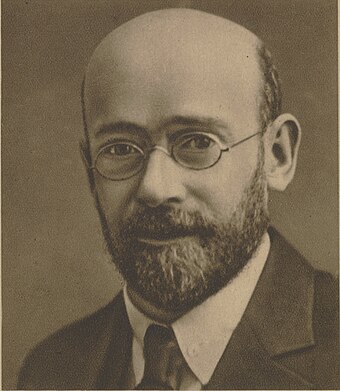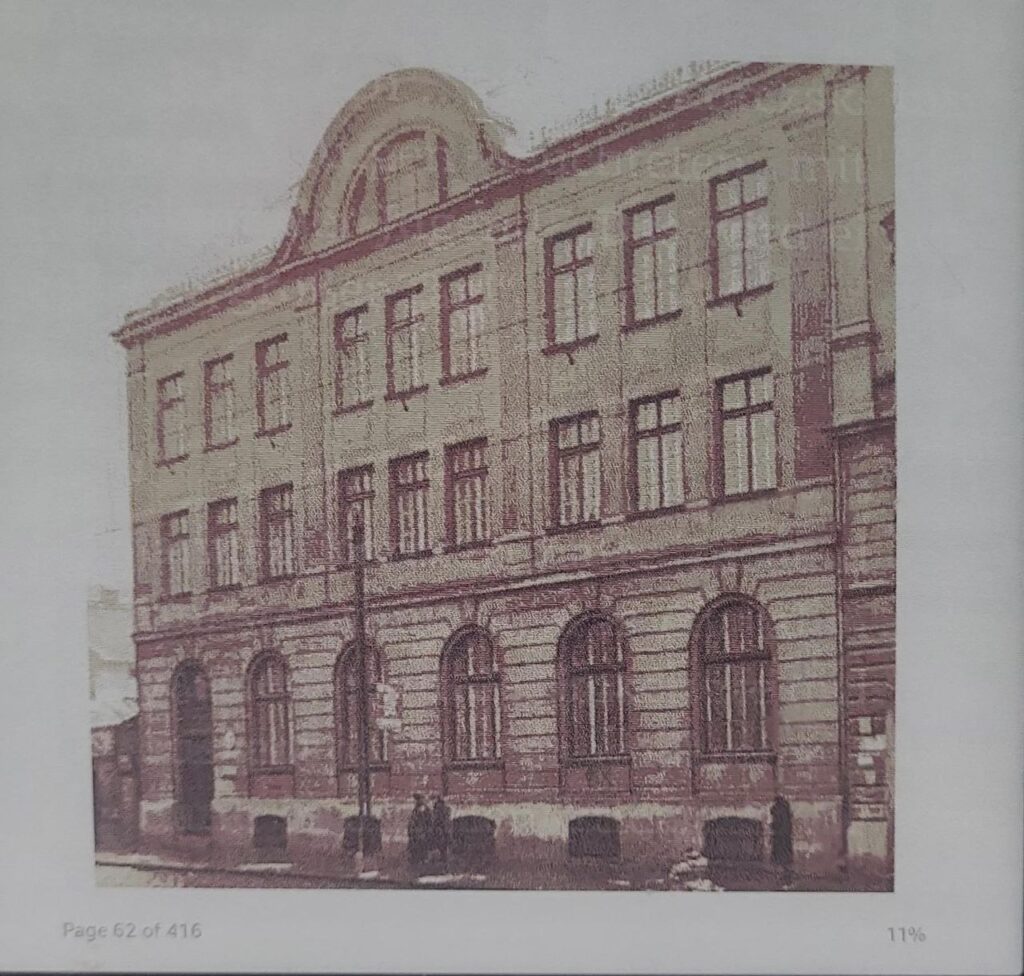An Exemplary Man: Janusz Korczak
I am currently reading Leonkadia (Lorraine) Justman’s account 1) about her time in the ghettos of various Polish cities, her escape to Innsbruck, and her further life in the “Third Reich.”
I was particularly moved by this passage about Janusz Korczak, a Polish military and pediatric doctor, children’s book author, and educator who ran an orphanage in Warsaw and moved with it into the ghetto:
 Janusz Korczak was a bachelor who had lovingly devoted himself to the orphans of Warsaw for years. He wrote for and about them; he played with them and fulfilled their every wish. He was their everything, and they were his one and greatest love. When a friend offered him safe refuge within his four walls, he declined. He did not want to be separated from his children and accompanied them into the ghetto to share their fate and ease their lives. No one who met these lively little beings would have thought they were orphans. Their sunny disposition, their love of music, and their many interests were proof of the cheerful atmosphere in which they were raised. Surrounded by his charges, one could easily have mistaken Janusz Korczak for their devoted father.
Janusz Korczak was a bachelor who had lovingly devoted himself to the orphans of Warsaw for years. He wrote for and about them; he played with them and fulfilled their every wish. He was their everything, and they were his one and greatest love. When a friend offered him safe refuge within his four walls, he declined. He did not want to be separated from his children and accompanied them into the ghetto to share their fate and ease their lives. No one who met these lively little beings would have thought they were orphans. Their sunny disposition, their love of music, and their many interests were proof of the cheerful atmosphere in which they were raised. Surrounded by his charges, one could easily have mistaken Janusz Korczak for their devoted father.

Janusz Korczak’s orphanage in the Warsaw Ghetto, Chłodna Street 33
“It’s quite warm today,” he remarked… “Summer is striving toward God. Hopefully, the next year will embrace us just as warmly so that I can take my little darlings out into nature. Into the green forests, to the golden fields, onto the colorful meadows. To show them the beauty of God reflected in the brook or river.”
“That will be great!” exclaimed the freckled Henryk. “Then we’ll walk along the railway tracks, far, far away from the ghetto to the land of true happiness.” Henryk was a dreamer and loved inventing stories about a beautiful future. But wasn’t that precisely what was needed in these times, when the present was so terrifying and hopeless? Lewin cleared his throat. “Let us pray for this great day of peace,” he added with the pathos of a preacher. “It will bring the end of the war and the end of all cruelty, for all of us.”
“Peace…” Janusz Korczak’s blue-gray eyes gleamed with the radiance of youth. “That will be a great, great day!”
Janusz Korczak had not the slightest idea what would happen a year later. He could not foresee that he and his children would then be transported in dark, stifling cattle cars into the unknown. He could not know that he would use the same words about the beauty of nature—the tall trees, the clear rivers and streams—to comfort his frightened charges, whose fate he shared to the very end. How could he ever have imagined that exactly one year later, instead of great freedom, the great gate to the land of horror and death would be waiting—the diabolical, inhuman machinery of deranged minds—the land of the gas chambers of Treblinka?
Janusz Korczak was murdered with the entire population of the orphanage when it was sent to the Treblinka extermination camp during the Grossaktion Warschau of 1942.
- Leonkadia Justman’s survival story was turned into a book as part of a project at the University of Innsbruck and is available both as a hardcover book and as an eBook: Brechen wir aus!: Als polnische Jüdin auf der Flucht in Tirol. Eine autobiografische Überlebensgeschichte (Let’s Break Out!: A Polish Jewish Woman on the Run in Tyrol. An Autobiographical Survival Story. A briefer earlier version is available in English, as hardcover only: In Quest for Life: Ave Pax [↩]
